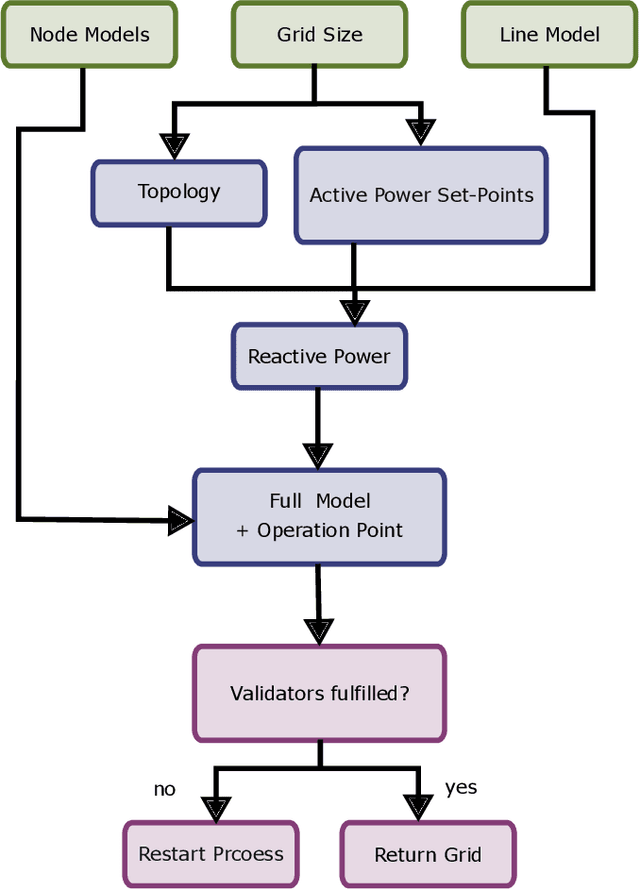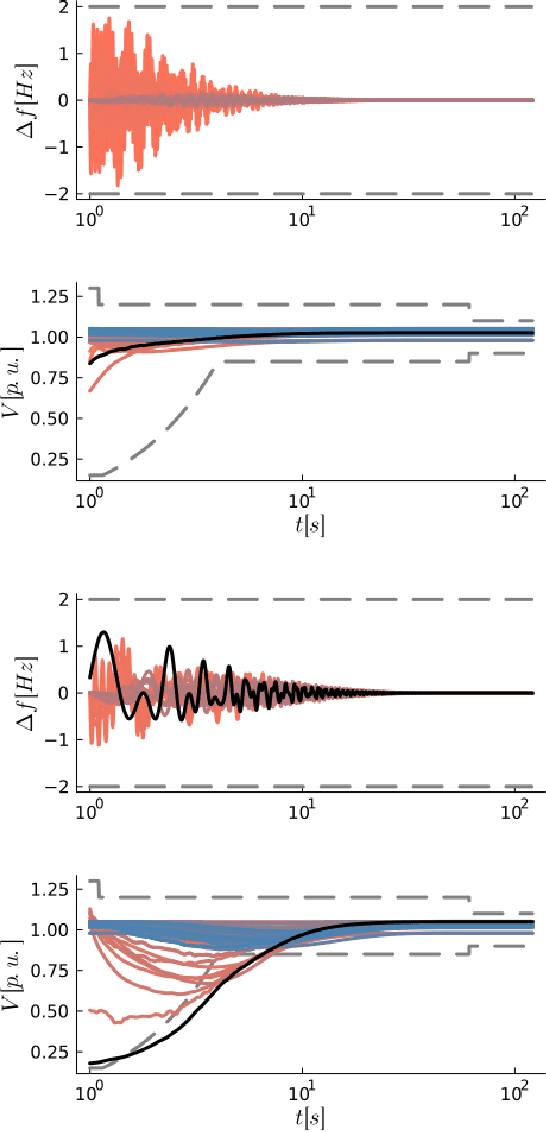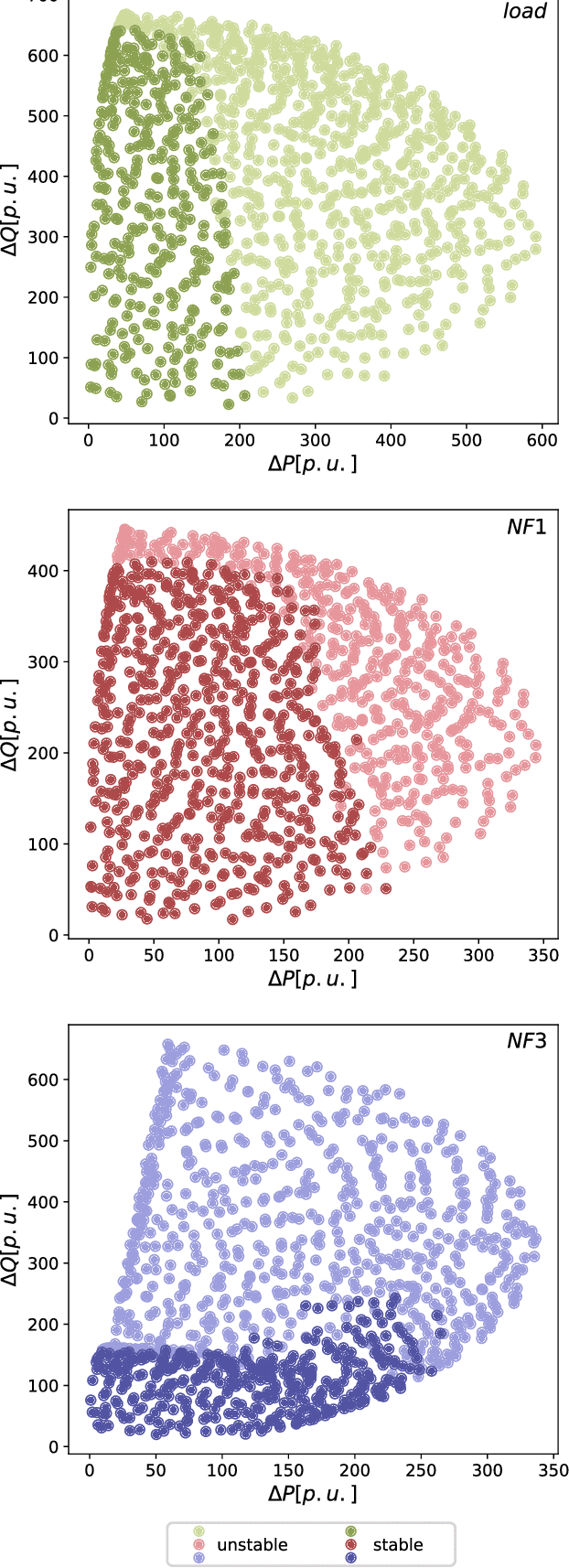Anna Büttner
Projected Neural Differential Equations for Learning Constrained Dynamics
Oct 31, 2024



Abstract:Neural differential equations offer a powerful approach for learning dynamics from data. However, they do not impose known constraints that should be obeyed by the learned model. It is well-known that enforcing constraints in surrogate models can enhance their generalizability and numerical stability. In this paper, we introduce projected neural differential equations (PNDEs), a new method for constraining neural differential equations based on projection of the learned vector field to the tangent space of the constraint manifold. In tests on several challenging examples, including chaotic dynamical systems and state-of-the-art power grid models, PNDEs outperform existing methods while requiring fewer hyperparameters. The proposed approach demonstrates significant potential for enhancing the modeling of constrained dynamical systems, particularly in complex domains where accuracy and reliability are essential.
Predicting Fault-Ride-Through Probability of Inverter-Dominated Power Grids using Machine Learning
Jun 13, 2024



Abstract:Due to the increasing share of renewables, the analysis of the dynamical behavior of power grids gains importance. Effective risk assessments necessitate the analysis of large number of fault scenarios. The computational costs inherent in dynamic simulations impose constraints on the number of configurations that can be analyzed. Machine Learning (ML) has proven to efficiently predict complex power grid properties. Hence, we analyze the potential of ML for predicting dynamic stability of future power grids with large shares of inverters. For this purpose, we generate a new dataset consisting of synthetic power grid models and perform dynamical simulations. As targets for the ML training, we calculate the fault-ride-through probability, which we define as the probability of staying within a ride-through curve after a fault at a bus has been cleared. Importantly, we demonstrate that ML models accurately predict the fault-ride-through probability of synthetic power grids. Finally, we also show that the ML models generalize to an IEEE-96 Test System, which emphasizes the potential of deploying ML methods to study probabilistic stability of power grids.
 Add to Chrome
Add to Chrome Add to Firefox
Add to Firefox Add to Edge
Add to Edge